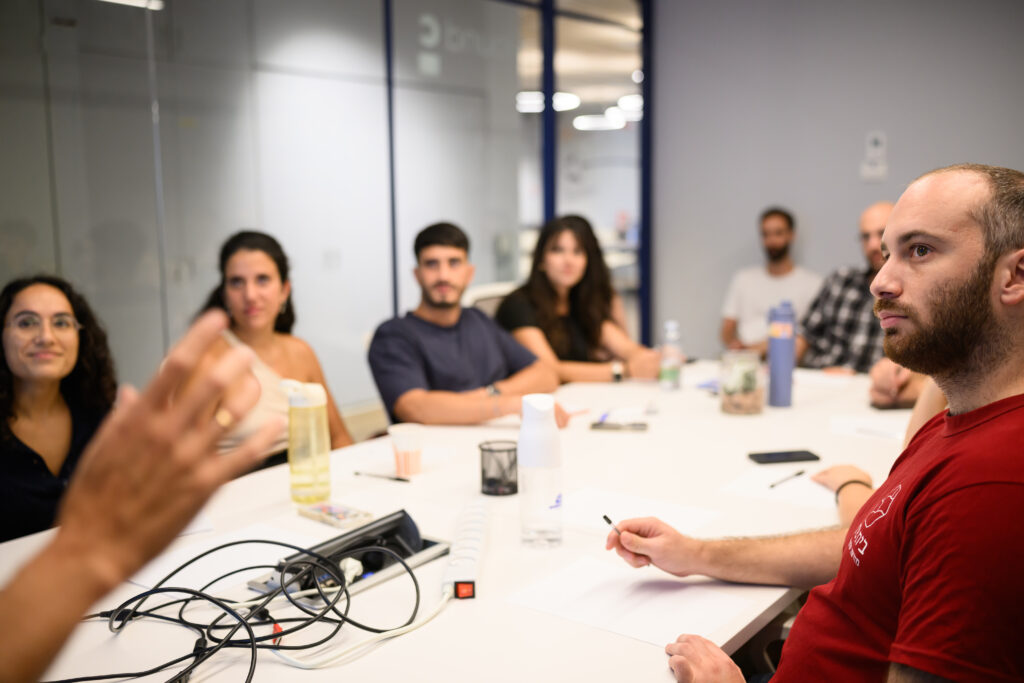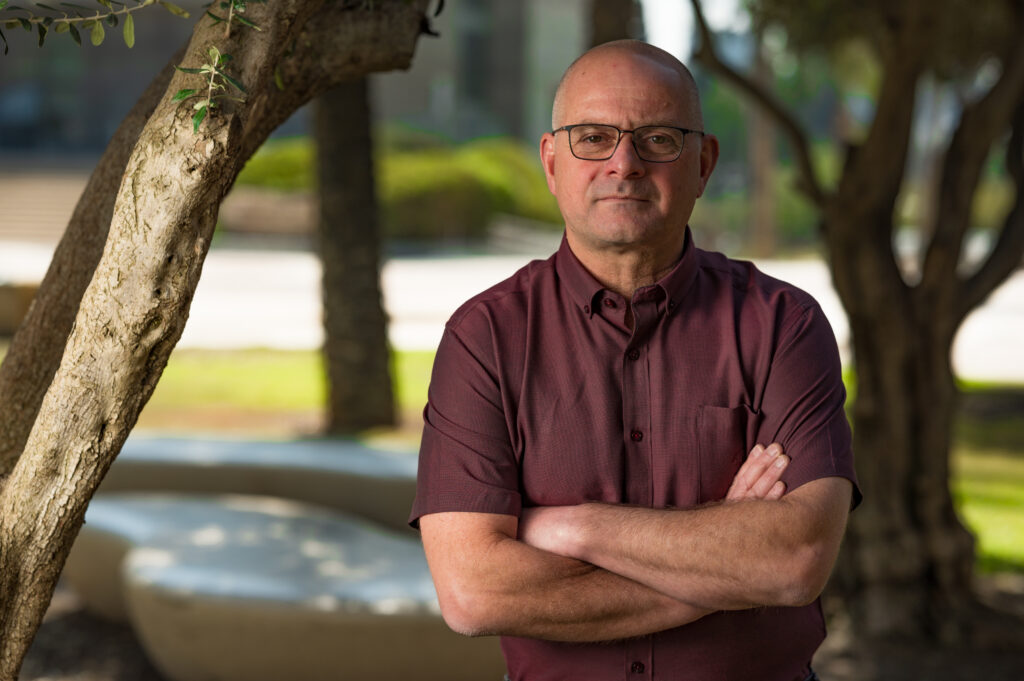
BGU Team Develops Autonomous Submarine for RoboSub
BGU Team Develops Autonomous Submarine for RoboSub
July 19, 2013
Press Releases, Robotics & High-Tech
SAN DIEGO and BEER-SHEVA, Israel, July 19, 2013 — A team of 18 Ben-Gurion University of the Negev (BGU) students has designed and developed an intelligent, autonomous submarine called the “Hydro Camel,” the first of its kind in Israel.
Several members of the BGU Hydro Camel submarine team will compete in the 16th Annual RoboSub Competition in San Diego from July 22-28, sponsored by the United States Office of Naval Research and the AUVSI Foundation (Association for Unmanned Vehicle Systems International).
This year’s competition features 36 national and international collegiate and high school teams. The goal is to advance the autonomous underwater vehicle (AUVs) development by challenging a new generation of engineers to perform realistic missions in an underwater environment.
“There is a need for an autonomous submarine that is equipped with an intelligent navigation system with functions that include mission planning, obstacle avoidance and decision-making that are as good as a human operator,” says Prof. Hugo Guterman, head of BGU’s Laboratory of Autonomous Robotics.
“After the competition, we plan to further develop the submarine to its optimum capabilities, which we hope will place the State of Israel at the forefront in developing tools for marine autonomy,” says Hydro Camel team member Guy Kagan, who will be competing in San Diego.
The cylindrical, carbon fiber Hydro Camel sub measures some five feet (1.5 m), weighs 84 lbs. (38 kg.) and is divided into five main cells. The four side cells, filled with water, contain six thrusters, a robotic arm, torpedoes, batteries, and cameras. The central cell houses the electrical system, main computer and all electrical components.
Today, there are many remotely operated submarines that handle important tasks such as checking underwater pipelines, mapping underwater minefields and searching for sunken vessels. However, they are limited by effective communication cables and require frequent human-operator contact.
“BGU is developing a more accurate and effective autonomous, independently thinking underwater vessel that would revolutionize their ability to carry out other tasks,” explains Boris Braginsky, another BGU team member competing in San Diego.
“BGU is quickly becoming known in the United States and worldwide for its robotics expertise, having recently led Israel’s team in the Defense Advanced Research Projects Agency (DARPA) Robotics Competition,” explains Doron Krakow, executive vice president, American Associates, Ben-Gurion University of the Negev (Americans for Ben-Gurion University).
“We wish the team members much luck and appreciate their contribution to the research and technological advancement of the State of Israel. I also want to thank our generous supporters for making the team’s participation possible.”
The students are able to attend the competition due to support from Americans for Ben-Gurion University donors Murray and Robert Shusterman from Philadelphia and Louis Colen of Los Angeles.
ABOUT AMERICANS FOR BEN-GURION UNIVERSITY
By supporting a world-class academic institution that not only nurtures the Negev, but also shares its expertise locally and globally, Americans for Ben-Gurion University engages a community of Americans who are committed to improving the world. David Ben-Gurion envisioned that Israel’s future would be forged in the Negev. The cutting-edge research carried out at Ben-Gurion University drives that vision by sustaining a desert Silicon Valley, with the “Stanford of the Negev” at its center. The Americans for Ben-Gurion University movement supports a 21st century unifying vision for Israel by rallying around BGU’s remarkable work and role as an apolitical beacon of light in the Negev desert.
About Ben-Gurion University of the Negev
Ben-Gurion University of the Negev embraces the endless potential we have as individuals and as a commonality to adapt and to thrive in changing environments. Inspired by our location in the desert, we aim to discover, to create, and to develop solutions to dynamic challenges, to pose questions that have yet to be asked, and to push beyond the boundaries of the commonly accepted and possible.
We are proud to be a central force for inclusion, diversity and innovation in Israel, and we strive to extend the Negev’s potential and our entrepreneurial spirit throughout the world. For example, the multi-disciplinary School for Sustainability and Climate Change at BGU leverages over 50 years of expertise on living and thriving in the desert into scalable solutions for people everywhere.
BGU at a glance:
20,000 students | 800 senior faculty | 3 campuses | 6 faculties: humanities & social sciences, health sciences, engineering sciences, natural sciences, business & management, and desert research.
For all press inquiries, please contact:
James Fattal, J Cubed Communications
516.289.1496



